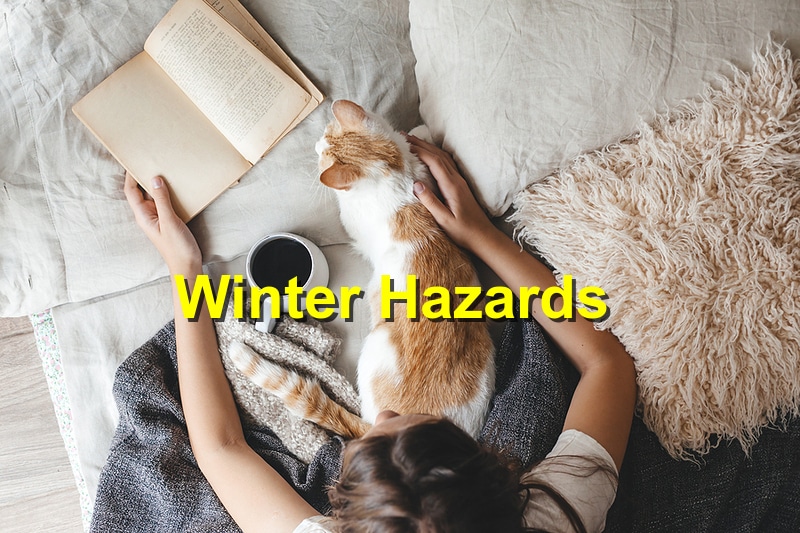Winter Hazards: Protecting Your Pet from Cold Weather Dangers

Winter brings cozy moments but also poses unique challenges for pet owners. Cold temperatures, ice, and seasonal risks can threaten your furry friends’ safety. By understanding these dangers and taking preventive measures, you can keep your pets healthy and comfortable all winter long.
1. Cold Temperatures and Hypothermia
Pets are vulnerable to hypothermia in freezing conditions:
- Warning Signs: Shivering, lethargy, or frostbitten extremities like ears or paws.
- Prevention Tips: Limit outdoor time, use pet-friendly sweaters or jackets, and provide a warm indoor space.
- Breed Considerations: Small, short-haired, and elderly pets are more susceptible to the cold.
2. Salt and De-Icing Chemicals
While helpful for melting ice, these substances can harm pets:
- Risks: Chemicals can irritate paws or cause illness if ingested.
- Protection: Rinse paws after walks or use booties to shield them. Look for pet-safe de-icing products for your property.
3. Frozen Water Hazards
Ponds and lakes may freeze over but remain dangerous:
- Risk Factors: Pets can fall through thin ice and suffer hypothermia or drowning.
- Precautions: Keep dogs leashed near bodies of water and ensure your yard is secure.
4. Antifreeze Poisoning
Antifreeze is highly toxic but appealing to pets due to its sweet taste:
- Symptoms: Vomiting, lethargy, and seizures.
- Prevention: Store antifreeze securely, clean up spills immediately, and use pet-safe formulations.
- Emergency Action: Contact a veterinarian immediately if ingestion is suspected.
5. Increased Calories and Hydration Needs
Winter weather affects pets’ energy and hydration levels:
- Diet Adjustments: Outdoor pets may need extra calories to maintain body heat, while indoor pets require portion control to prevent weight gain.
- Water Access: Prevent outdoor water bowls from freezing by using heated options.
6. Indoor Hazards
Even inside, your home may hold winter-specific risks:
- Space Heaters: Keep pets away from heaters to prevent burns or tipping accidents.
- Holiday Decorations: Strings of lights and seasonal plants like poinsettias and mistletoe can be toxic if chewed or ingested.
7. Paw Care and Grooming
Cold weather can take a toll on your pet’s paws:
- Cracking and Dryness: Use pet-safe balms to moisturize paw pads.
- Snow Removal: Trim fur around paws to reduce ice buildup and discomfort.
Conclusion
Winter doesn’t have to be a season of discomfort for pets. By recognizing potential hazards and taking proactive steps, you can ensure your furry companions enjoy a safe and cozy winter. Bundle them up, keep hazards at bay, and make this season a warm one for all members of your family.
https://braseltonervet.com/?p=4347
Comments
Post a Comment